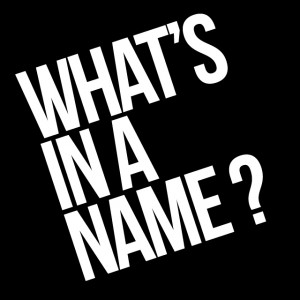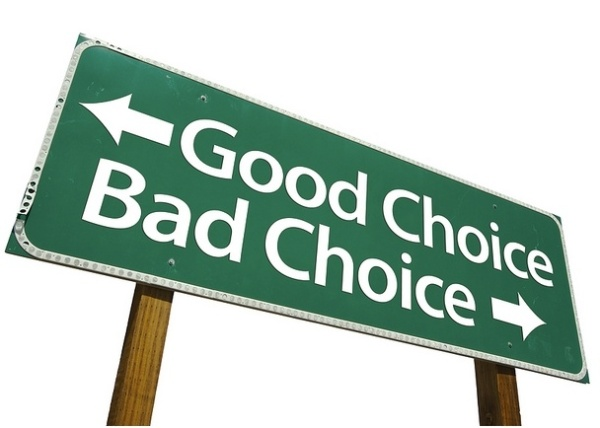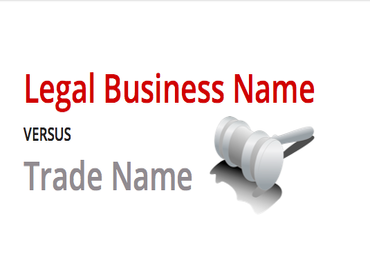Creating a name that sells

What's the name for my business?
Richard Branson shared some relevant and important advice:
“I’ve founded many companies, but I don’t consider myself an expert on naming them,” the Virgin Group founder admits. “My branding experience centers primarily on two enterprises: Student and Virgin. Both experiences gave me some insights that you might find helpful.”
Richard has four simple tips”
1. Know your audience: Think about the type of people you want to attract, and what appeals to them.
2. Keep it simple: Ensure that your brand name demonstrates what you’re all about. Remember that it doesn’t always have to be obvious: The name can be made up, or left of center. Just look at names like Google, Apple, Facebook, Nike – and Virgin! Unlike Student, Virgin wasn’t self-explanatory, but it was simple enough that the word has become synonymous with the brand.
3. Choose something striking: If you hope to grow your business into other products and industries, it’s important to come up with a name that can be recognized far and wide.
4. Have fun! We created the Virgin brand in the 1970s, so you can imagine how people responded to the name. On one hand, it was the age of free love; on the other, much of society was still very conservative. By naming our brand Virgin, we challenged the status quo and had a hell of a lot of fun doing it. (And it served us well in terms of generating publicity!)
There's no one-size-fits-all formula for picking a great business name. The best name depends on a host of considerations -- some as obvious as the kind of business you do, others as unique as your own tastes and style. There are, however, a few guidelines that will steer you in the right direction. A good business name should:
- be distinctive
- be memorable
- be easily spelled and pronounced
- suggest the products or services you offer, and
- distinguish you from your competitors.

Things to consider when picking a name:
- Yanik Silver of Maverick 1000 suggests that,
” The name needs to sound good when it's said aloud. I'm a big fan of alliteration, using words that start with the same consonant, Coca-Cola or Jimmy John's. Just make sure to say it aloud -- a lot -- and make sure this isn't a "she sells seashells on the seashore" situation. People need to say the name on the radio, a video or in conversation.”
- What is the purpose of the business? By starting out with your purpose, USP, or mission statement it might make it easier to come up with your name. The name should be self-explanatory – tell us what you do so that it works seamlessly with your branding.
- Does it reflect the values of your business” Once you have crafted your purpose, USP, or mission statement, it always is a good idea to formulate your value statement, great companies have a clear company identity and stand for something.
- Adam Fridman of Mabbly reminds us that your name is often the first thing your client sees. “Your company name plays a monumental role in a brand's growth and perception, meaning it can completely make or break a company. So it has to convey the right message; it has to wow the audience.”
- Chris Carter, Rep Interactive tells us to Tie it To Your Story. We communicate in stories. It's how effective marketing and communication connects to our target audience. When developing the name of a new company, one of the most frequently asked questions that I've observed is "how did you get your name?" If you answer, "it sounds cool" or "it explains what we do," in my opinion, you missed a big opportunity to become more memorable to your target audience.
- Chuck Groot of Optimizing Profits explains that when you are brainstorming make sure that each name you come up with is checked against any name already used on the internet. You'll have to conduct a name and trademark search to make sure no one else is using the name you want to use (or a very similar name) to market similar products or services. Once you have selected your name you should also check with your county clerk's office to see whether your proposed name is already on the list of fictitious or assumed business names in your county. If you find that your chosen name (or a very similar one) is registered as a trademark, or is listed on a fictitious or assumed name register, you shouldn't use it.
- Jay Jurisich, CEO and creative director of naming agency Zinzin, shares that; “The name you want will likely express how your business does business, not just what you sell, he said. That means avoiding literal descriptive names of products or services, as well as geographic references that may limit your marketplace.”
What issues should I keep in mind when picking a name for my business?
- One of the things to look out for is a Committee Decision
All too often it is the kiss of death when you include family, friends, and clients in the decision making process. You may upset people when you don’t choose their amazing name for you. The other challenge is that creativity in a group like the one above is usually low and the name that people might settle on could be very safe and boring.
- Richard Harroch warns us to avoid hard to spell names. You don’t want potential customers getting confused about how to find your business online. (I never understood why “Flickr” was pushed as the name for the photo-sharing site.) You want to avoid having to continually correct the misspelled version of your name. Keep it simple.
- Fabian Geyrhalter, FINIEN explains “Don’t make your name to descriptive. Ensure to stay away from a name that’s too descriptive to avoid costly rebranding as your core focus may shift in the future. The uncertainty surrounding a rebranding effort could cost you time, money and even loyal customers. At the very least, you’ll confuse them.”
- MARTY ZWILLING, “Don’t box yourself in. Avoid picking names that don’t allow your business to move around or add to its product line. This means avoiding geographic locations or product categories to your business name. With these specifics, customers will be confused if you expand your business to different locations or add on to your product line.”
- Josh Spiro warns us, Don't be a copycat Pinkberry, a popular frozen yogurt chain, has spurred countless imitators with "berry"-studded names, so when a yogurt chain approached Watkins she wanted to help them find a really distinctive name. They ended up calling the company Spoon Me, and the name was such a hit that t-shirts and bumper stickers bearing the brand were flying out the door. "They're making more money selling t-shirts and buttons and bumper stickers than they are selling frozen yogurt," Watkins exclaims. When "people are paying you to advertise your brand that's the ultimate in a good name."

What if you are a corporation, LLC, or Limited Partnership
If you're organizing your business as a corporation, LLC, or limited partnership, you must also make sure your business name isn't the same as that of an existing corporation, LLC, or limited partnership in your state. If a name that is identical or very similar to your proposed business name turns up in your state's database, you'll have to choose another. Plus, if you're starting a corporation, LLC, or limited partnership, you must comply with a few state/provincial rules for naming your business

What is a trademark?
A trademark (sometimes called simply a "mark") is any word, phrase, design, or symbol used to market a product or service. Technically, a mark used to market a service, rather than a product, is called a service mark, though the term "trademark" is commonly used for both types of marks because they refer to the same group of legal protections. Owners of trademarks have rights under both federal and state law that gives them the power in many cases to prevent others from using the same or confusingly similar trademarks.
To make sure your proposed business name won't step on someone else's rights to an existing trademark; you'll have to do a trademark search. Also, when picking a business name, you should take care to choose a name that will be likely to receive trademark protection and then take steps to protect your business name as a trademark.

What is the "legal name" of my business?
The legal name of a business is the official name of the person or entity that owns a business. If you are the only owner of your business, then its legal name is simply your full name.
If your business is a general partnership, and you have a written partnership agreement that gives a name to the partnership, then that name is the legal name of the business. Otherwise, the legal name of a general partnership consists of the last names of the owners.
For limited partnerships, LLCs, and corporations, the legal name of the business is the name registered with the state filing office.
Your business's legal name will be required on all government forms and applications, and is particularly important to use on your application for a federal employer identification number.
What is a fictitious business name?
The term "fictitious business name" (or "assumed business name," "trade name," or "DBA" for "doing business as") is used when a business uses a name that's different from its legal name. For instance, if John O'Toole names his sole proprietorship Turtle's Classic Cars, the name "Turtle's Classic Cars" is a fictitious business name because it does not contain John's last name, "O'Toole."
If your business uses a fictitious business name, you'll need to register it with a government agency -- in most states, your local county clerk's office.
Do I have to register my business name?
If you're starting a corporation, LLC, or limited partnership, your official business name will be automatically registered when you file your articles of incorporation, articles of organization, or statement of limited partnership with your state filing office. However, if you will sell products or services under a different name, you must also file a fictitious name statement (sometimes called an "assumed" name statement) with the state or county where your business is headquartered.
Other types of businesses may also have to comply with fictitious or assumed business name requirements. Generally, any business that doesn't use its legal name as part of its business name must file a fictitious name statement with a government agency, usually the county clerk's office
You may also want to take advantage of the extra protection that registering your name as a trademark can give you. While it's not required, registering your name as a trademark at the state and/or federal level can prevent other businesses from using a name that's likely to be confused with your business name.
Can I change my business name to include "Inc." or "LLC"?
Some people confuse choosing a business name with choosing a type of ownership structure, such as a corporation or limited liability company (LLC). But you can't just tack "Inc." or "LLC" onto the end of your business name and start calling yourself a corporation or LLC.
First you must form a corporation or LLC, and to do so you've got to follow certain filing procedures to register the new type of company with your state or province.
As Richard Branson suggested earlier in the article – have fun with it! I always make a list of at least 20 names. The first ones are easy and usually not very creative. As you go along, it becomes more difficult. This difficulty increases the creativity, uniqueness, and accuracy of the name for the business.
When doing this I find that the name we choose comes from either the first three we created or the last three. Usually it is either the first or the last.
Good luck
